Children in food-insecure homes visit doctors, ER more than peers, study says
By sandland on August 1, 2023
Children in food-insecure homes visit doctors, ER more than peers, study says
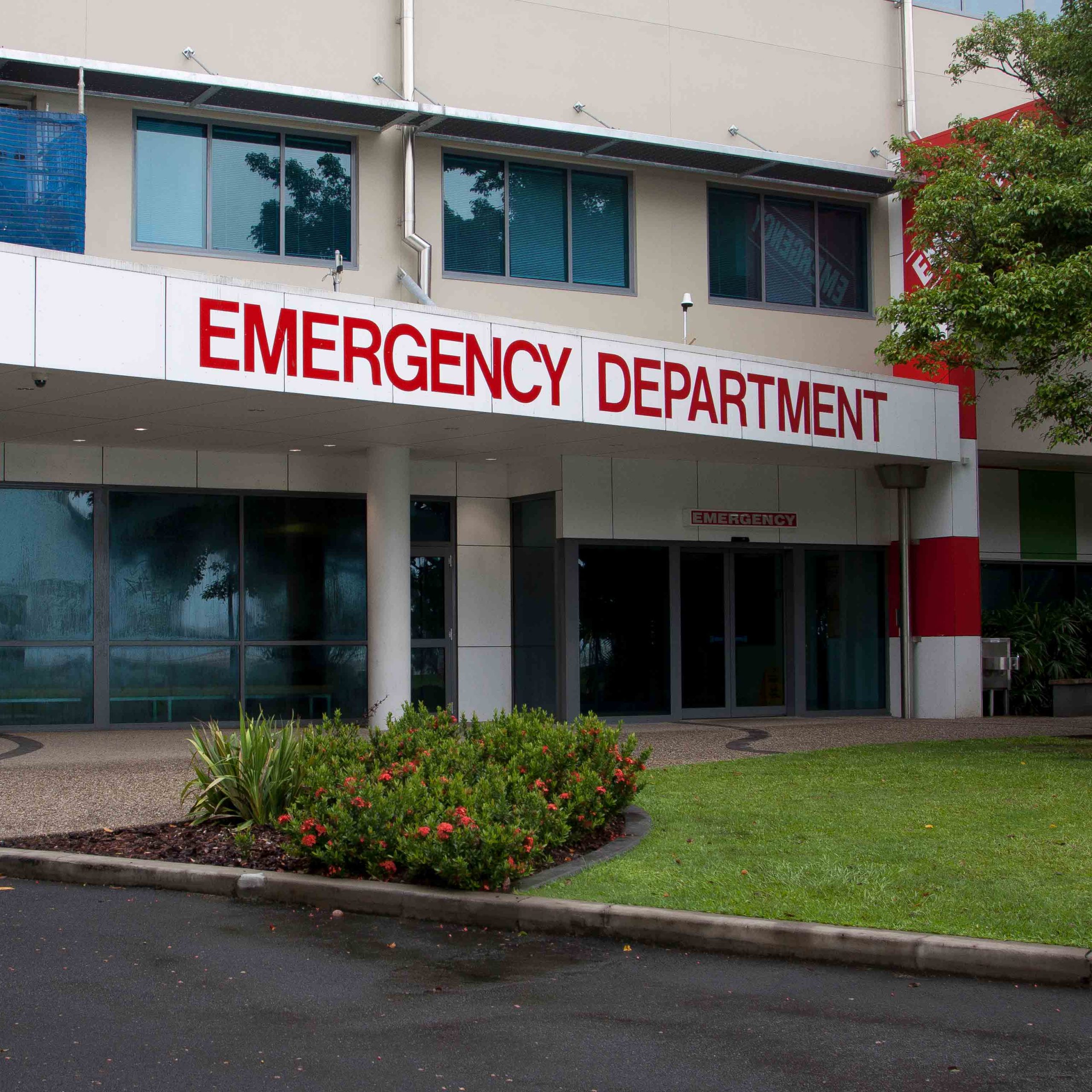
Emergency Room Sign
July 24, 2023
Jennifer Black commented on a study that found children without a reliable food source make more visits to doctors and emergency departments.
“The toll food insecurity takes on families is clear,” Dr. Black said.
Read More | No Comments
By sandland on August 1, 2023
How to keep the fun and ditch the food poisoning this summer

Image of some food on a grill. Photo credits: UBC News
July 21, 2023
Enjoying food outdoors with family and friends is a quintessential summer activity, but foodborne pathogens can thrive in the summer heat and humidity.
Dr. Siyun Wang, a food safety researcher and professor in the faculty of land and food systems, shares her top tips for safely consuming our favourite foods this summer.
Read More | No Comments
By sandland on July 21, 2023
For these researchers, an ideal summer night is spent chasing bats through Vancouver’s parks

A wild bat is pictured at Vanier Park in Vancouver on July 11.(Gian Paolo Mendoza/CBC)
July 24, 2023
Researchers Dr. Matthew Mitchell (CSFS Associate and Land and Food Systems) and Aaron Aguirre (Institute for Resources, Environment and Sustainability) are monitoring bats in B.C. to protect them from white-nose syndrome.
Read the full article at CBC
Read More | No Comments
By sandland on July 19, 2023
B.C. drought: ‘If you’re using water you don’t need right now, it’s cutting into your food security’
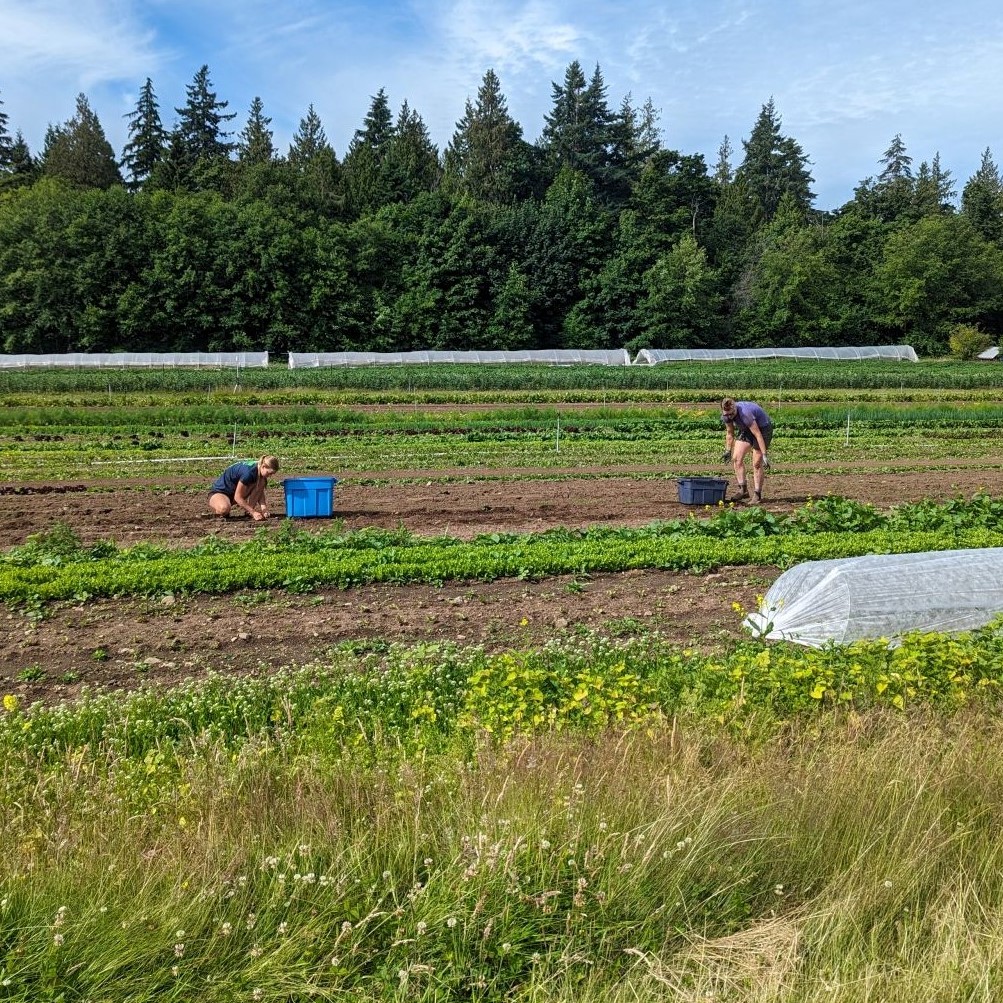
Image of two people working at the UBC Farm (Photo Credits: UBC Farm)
July 14, 2023
Director of the Centre for Sustainable Food Systems and Land and Food Systems professor Dr. Sean Smukler said we need to start investing in infrastructure for B.C.’s future climate.
“The challenge is that we need to start building the infrastructure for the climate of the next 30 to 100 years,” he said. “The public needs to understand the need to invest tax dollars in these projects so our kids can have local fruit and vegetables.”
Read More | No Comments
By juliana cao on July 15, 2023
Canada wildfire smoke chokes millions in North America

Two women look at Montreal’s Jacques-Cartier Bridge through the smoke caused by wildfires in Northern Quebec on June 25, 2023 (Photo credit: Andrej Ivanov/AFP)
July 11, 2023
CSFS Associate Dr. Matthew Mitchell was interviewed about how wildfire smoke can have both acute and chronic health effects on wildlife, similar to humans.
“There’s a whole suite of chemicals in the smoke that can affect gas exchange in the blood, lower the lung capacity of animals,” said Dr. Mitchell. “Even marine mammals such as whales and dolphins can be affected by the smoke when they come up to breathe.”
Read More | No Comments
By juliana cao on July 5, 2023
The Best Long Table Feasts of Summer 2023

July 5, 2023
There are a lot of beautiful dining rooms in Vancouver, but this time of year none can compete with BC’s many naturally spectacular outdoor settings. From long table dinners to more casual al fresco events, Scout Magazine has compiled a list of six memorable opportunities to enjoy eating outside this summer, including the UBC Farm’s Long Table Dinner on July 21.
Tickets for our Long Table Dinner are currently sold out, but you can still join the waitlist. Additional tickets may be released!
Read More | No Comments
By juliana cao on June 15, 2023
Wildlife unseen casualty as forests burn in worst wildfire season of the century
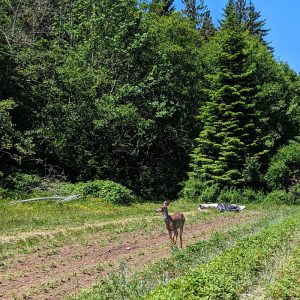
June 15, 2023
CSFS Associate Matthew Mitchell (land and food systems) commented on how wildfires affect Canada’s wildlife.
“It can affect their lungs, it can change blood chemistry, lower oxygen levels, and so then you can also have effects on the immune system,” Mitchell says. “Those sorts of things can lead to changes in the demography, or the survival, growth and reproduction of animals as well.”
Read More | No Comments
By juliana cao on June 2, 2023
Most honey in America is fake — here’s why that matters
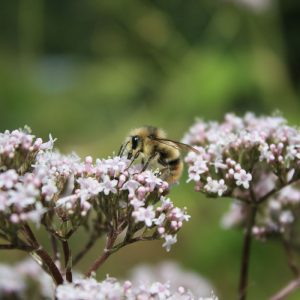
June 2, 2023
CSFS Associate and biochemistry and molecular biology professor Dr. Leonard Foster said that it’s hard to know how much of the honey in America is fake.
“The best way to make sure that you’re getting real honey is to buy directly from a beekeeper,” says Foster.
Read More | No Comments
By juliana cao on May 15, 2023
B.C. scientists bracing for a deadly bat fungus
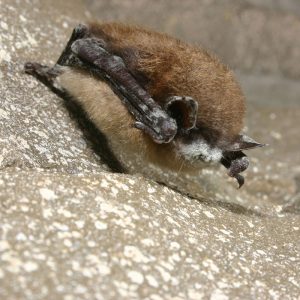
A little brown bat with white-nose syndrome.
(Photo: Al Hicks, New York Department of Environmental Conservation | CC BY 2.0)
May 15, 2023
CSFS Associate Dr. Matthew Mitchell (Land and Food Systems) and Aaron Aguirre (Institute for Resources, Environment and Sustainability) will spend the summer collecting data on bats in Metro Vancouver.
White-nose syndrome, a deadly fungal disease, has spread across Canada from the east and north from the U.S. and has killed millions of bats with a mortality rate of up to 95 per cent.
“The sooner we can get an idea of critical habitat areas, the better chance we have of monitoring and keeping track of these populations. And hopefully, monitoring the spread of white-nose syndrome,” Aaron Aguirre noted.
Read More | No Comments
By juliana cao on May 12, 2023
Bats in Vancouver: The secret city nightlife

May 12, 2023
CSFS Associate Dr. Matthew Mitchell (Faculty of Land and Food Systems) talks about his research this summer on bats in Vancouver, white-nose syndrome and bat populations across the province.
“They’re really under threat. We have 16 species of bats in BC and half of those are threatened with potential loss,” Dr. Mitchell noted.
Read More | No Comments









